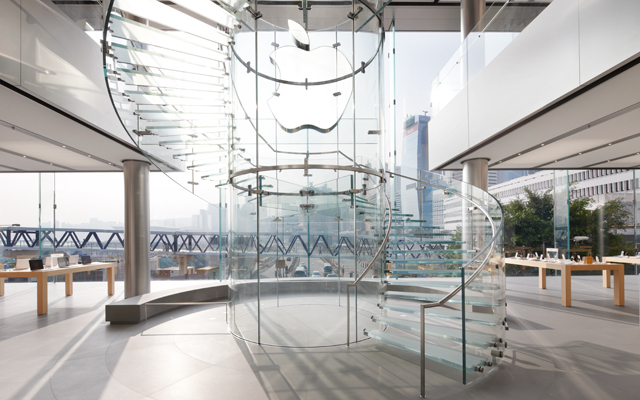Apple has seemingly become a victim of its own success, going by the pessimism going around this week after its record quarterly earnings.
Yes, despite selling more iPhones and iPads in the last three months of 2012 than before, it has disappointed investors enough for them to dump the stock afterwards. Prices fell to US$439.88 at the time of writing, after a high of more than US$700 last September.
Why is this happening? Let’s look at the numbers first.
Apple sold a record 47.8 million iPhones in the quarter that ended December 2012, up from 37 million in the same period a year ago. Customers also snapped up a record 22.9 million iPads during the quarter, a significant increase over the 15.4 million previously.
However, what investors and market watchers picked up on was the company’s net profit, which remained flat. It’s still a massive US$13.1 billion, but the fact that it was not rising again was enough to spook the market. Crucially, the gross margin for Apple products has come down from 38.6 per cent from 44.7 per cent a year ago.
So, was the pessimism justified?
The slowdown in growth is to be expected, first of all. But there are two issues that will come up very often now – Steve Jobs and Samsung.
Steve Jobs personified Apple to such a great extent that, ever since the Apple icon’s passing over a year ago, people have been anxiously wondering whether Apple can still perform without him. The legacy Steve Jobs left for Apple has resulted in burdening expectations for Apple, which it now needs to manage.
There are three big questions. Can Apple still come up with the Next Big Thing? Why is Apple suddenly making huge mistakes like with the disastrous iOS 6 maps? Why is Apple no longer setting technology trends but only following?
Yet, a look at the facts answers these questions pretty well.
The iPod was released in 2001, iPhone in 2007, iPad in 2010. So no, Apple has never released game-changing products on a yearly basis. MobileMe, Apple’s initial Cloud offering was almost unanimously regarded as a failure; it was supposed to do what iCloud now does, but did it terribly, and you still had to pay for it.
The iPhone 4 Antennagate, which caused such a huge uproar on the Internet and had people calling for a product recall, was also released under Steve Jobs. So no, Apple was never perfect and had made many mistakes under Steve Jobs as well.
The original iPhone had no 3G, and iOS received multi-tasking and cut-copy-paste abilities much later than Android. Apple never released a Tablet PC, as championed by Bill Gates in 2001, and neither did they give in to the tremendous pressure in 2005-2006 to make a netbook. What did they do? They released the Macbook Air and the iPad, and Tablets PC’s and netbooks are now history.
So again, no, Apple may have changed the status quo a few times, with the iPod, iPhone and the iPad, but it was never the result of rushing into the race to adapt new technologies.
Apple’s modus operandi is to bide their time and let everyone else dive into the game first, while they slowly learn, observe and experiment quietly. After that, they would come up with their own solution.
The next question investors are asking Apple is how it intends to fight bitter rival Samsung.
This is where the answers are not so clear and Apple’s very secretive culture makes the situation even worse. Investors, perhaps rightly so, are more interested in “future prospects than past successes”, and Apple’s remaining tight-lipped on the issue may be interpreted as having a lack of strategy.
Samsung presents the largest threat to Apple’s iPhone business, which is clearly the biggest business that Apple has. Until Apple can show that it can stand against the Korean electronics giant in the long term, this pessimism from investors could continue.
To some extent, the pessimism may be the result of jittery investors, some of whom go with sentiment more than sense. Apple did, after all, just post the fourth most profitable quarter by any company ever. Plus, more people are buying the iPhone, not fewer.
Still, Apple has much to prove in 2013. It may need another product that people don’t know they want yet, but which they’d love when they see it. Tim Cook’s Apple has yet to show one such magical gizmo. Apple fans will hope he does so soon.





